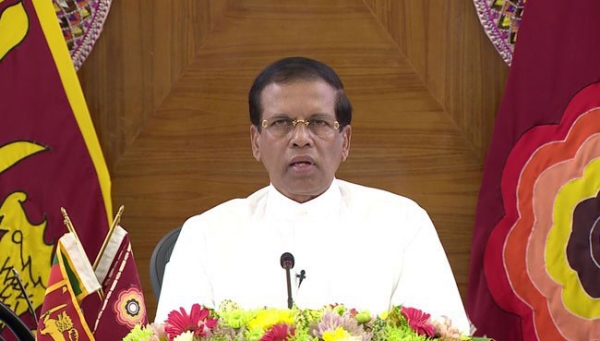Sri Lanka’s President, Maithripala Sirisena, must immediately halt his plans to resume executions for at least 13 prisoners convicted of drug-related crimes, Amnesty International said yesterday.
Amnesty International is alarmed to learn from media reports that preparations are underway to execute death row prisoners as part of the so-called National Drug Eradication Week, from June 21 – July 1, 2019. The executions would be the first time Sri Lanka has implemented the death penalty since 1976.
“We are dismayed by these reports that will see Sri Lanka surrender its positive record on the death penalty. Executions will not rid Sri Lanka of drug-related crime. They represent the failure to build a humane society where the protection of life is valued. The last thing that Sri Lanka needs right now is more death in the name of vengeance,” said Biraj Patnaik, South Asia Director at Amnesty International.
While no official announcement has been made by the President’s Office, several sources have confirmed to Amnesty International that the newly-recruited executioners have been trained and that President Sirisena has every intention to resume hangings.
Executions for drug-related offences are unlawful. They do not meet the threshold for “most serious crimes” - i.e. intentional killing - to which the use of the death penalty must be restricted under international human rights law and standards.
The details of the scheduled executions, how many prisoners at risk of execution remain unknown and it is not clear what the circumstances of their convictions and sentencing are.
By keeping these plans secret, the Government of Sri Lanka is preventing the public and human rights activists from accessing vital information to ensure that critical safeguards put in place by the international community to protect the rights of those facing the death penalty are fully observed.
“The taking of a human life by the state is one of the gravest acts a government can commit. The severity of the punishment as a minimum requires complete transparency as a key safeguard of due process,” said Biraj Patnaik.
States have a duty to ensure all proceedings have complied with international standards for a fair trial, including respecting the right to appeal and apply for clemency, and ensuring that the prisoners, their families and legal representatives are given adequate notice of any plans to carry out the execution. It is not clear that this process has been followed in these cases.
Amnesty International absolutely opposes the death penalty in all circumstances. The human rights organization calls on the Sri Lankan government to halt its current execution plans and establish an official moratorium on the implementation of death sentences, with a view to abolishing the death penalty altogether.










